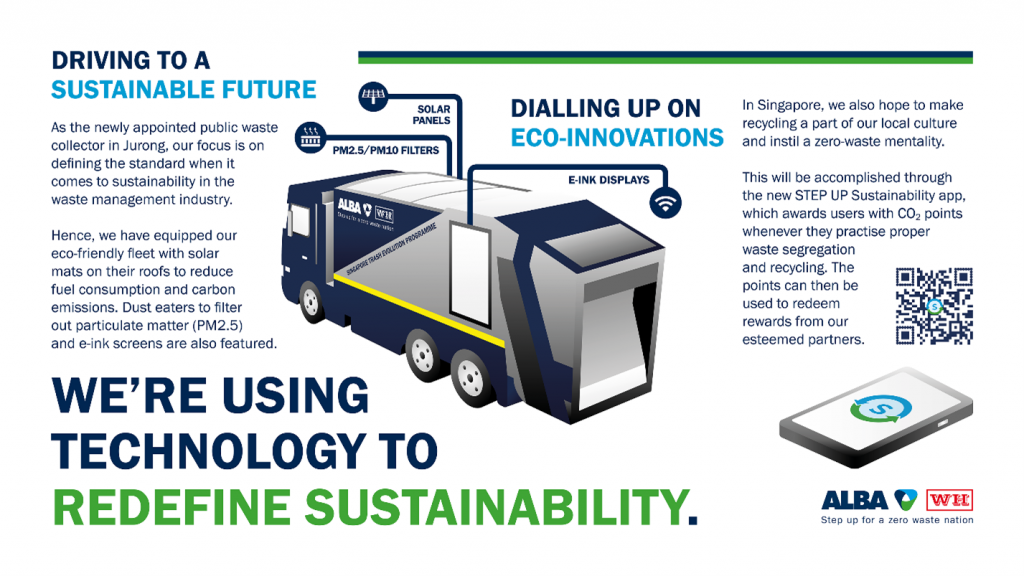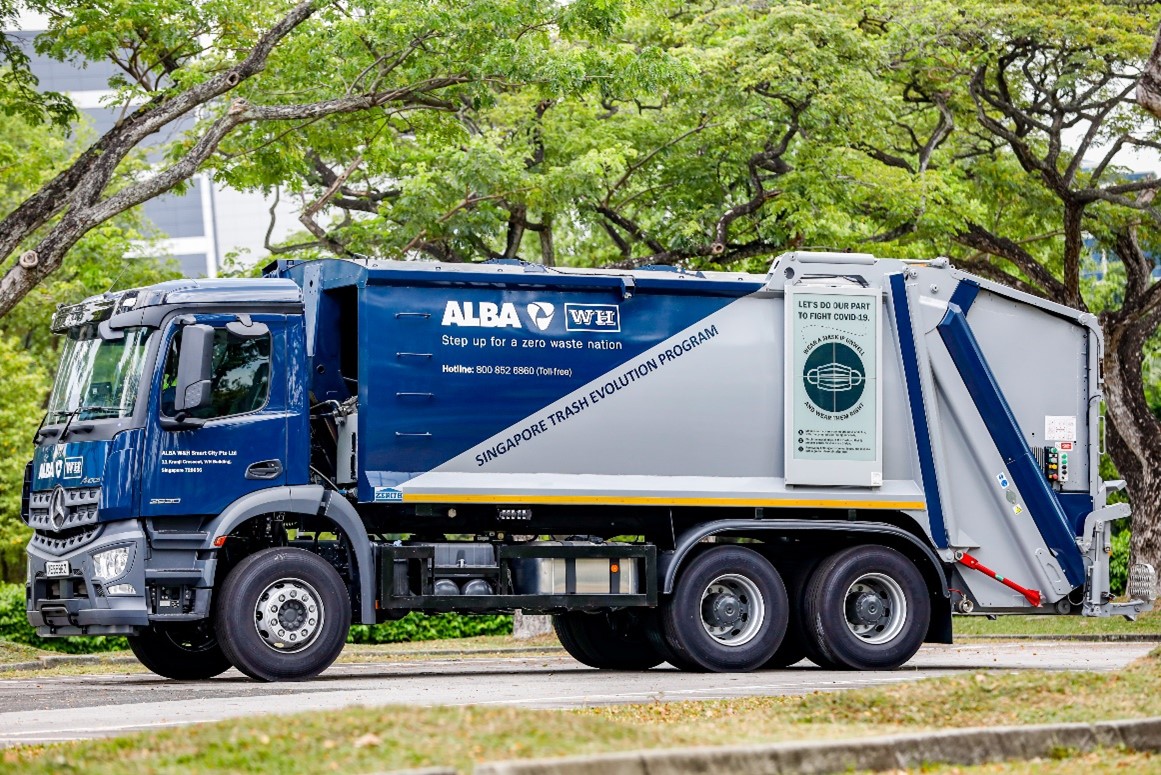This week Sandra Sajen from ALBA W&H Smart City talks about their solution for waste collection, and how they are thinking about the future of the sector.
Can you describe what your company does and the impact?
ALBA W&H Smart City (ALBA W&H) is a Joint Venture company between the 50-year-old German company, ALBA Group, and the local waste collection company, Wah & Hua Pte Ltd. The ALBA Group, one of the leading recycling and environmental services companies as well as raw material providers worldwide, operates with its two brands – ALBA and Interseroh – within Germany, Europa and Asia.
In 2019, ALBA Group saved 4.2M tons of greenhouse gases and 32.3M tons of primary raw materials through its recycling activities. In April of 2020, the National Environment Agency (NEA) of Singapore awarded the new Public Waste Collection contract for the Jurong sector to ALBA W&H Smart City. As the appointed public waste collector, ALBA W&H provides refuse and recyclables collection services to over 156,000 premises – comprising 151,000 households and 5,000 trade premises, including hawker and market stalls, shops, places of worship, and government buildings.
As a part of the solution, we introduced for the first time, as The Straits Times term it, “Eco-friendly Waste Collection Fleet” for refuse and recyclables collection.

Our fleet of trucks are retrofitted with sustainable features, like solar mats on roofs to decrease carbon emissions, dust-eaters to filter out particulate matter from the air, and feature e-ink screens on the sides to spread environmental awareness. We use a fully digitalized dynamic route planning software to plan and carry out daily refuse and recyclables collection. This enables collection activities to be tracked, specifically weights of the bins being measured by RFIDs and weight sensors. Our truck fleet includes side-loader trucks which decreases the manpower dependency from 2-3 people to 1 person, in addition to dual-compartment trucks, which collect recyclables and garden waste at the same time, reducing the number of collection trips required.
Keeping in pace with NEA’s environmental target of reaching 70% recycling rate by 2030, ALBA W&H introduced a specially developed app called STEP UP Sustainability which lets users collect green bonus points through proper waste segregation and recycling. The STEP UP Sustainability App is a pioneering mobile application that rewards users with green bonus points, known as CO2 points for their recycling efforts. CO2 points represent the amount of CO2 emissions that one could save through recycling actions. “The main intention of the app is to address the issue of low recycling rates by helping the public associate trash with value, make recycling more convenient and instill a zero-waste mindset,” said Jakob Lambsdorff, CEO of ALBA W&H. Users can redeem the points to gain vouchers and discounts with our list of sustainable redeem partners. The app also helps people locate the nearest recycling bins and cash-for-trash events. Additionally, the app provides tips and awareness for leading a sustainable lifestyle.
All in all, ALBA W&H stands as an innovation leader in the space, combining smart and productive technologies with sustainable approaches in the public waste collection realm.
What is the current market and policy landscape look like?
The NEA has been incentivizing and pushing companies to improve the existing collection mechanisms and has introduced the Zero-Waste Master Plan to improve the overall recycling quota and upgrade the environmental services industry in Singapore. They are also very keen on piloting new automated and digitalized technologies in the market in line with the Industry Transformation Map to decrease the dependency on foreign manpower. This urges the players in the market to bring in state-of-the art technologies, leading to improvement for many stakeholders in the ecosystem: recycling rates will increase while pollution from waste collection activities will decrease, leading to a more sustainable society; customers will benefit from improved collection services; workers will benefit from higher salaries.
Our customer, the National Environment Agency is particularly interested in data, which they can utilize to improve the waste management infrastructure. We designed our operations to accommodate this additional demand and nowadays start to collect not only waste but also data.
What are the current and future trends in the sector?
We feel the waste management and environmental services industry is getting more traction than ever before. Being in the waste collection field, we have the responsibility to not just collect the waste but also to ensure that people are aware of the problems and educated on recycling and reducing waste. In Singapore, the industry must overcome the challenge of establishing a Zero-Waste society with multiple dedicated waste collection schemes while facing the constraint of reduced manpower. The solution can lie in digitalized and demand-based collection solutions, as well as autonomous vehicles, which would hopefully be the key to minimize our dependency on manpower. We are actively exploring technological mega-trends such as AI, IoT, big data, and autonomous driving on their potential for waste management applications. This is why we perceive our trucks as more than just trucks – by exploring machine learning and AI, statistics, and database systems, these trucks will serve as the IoT platform that aids industry transformation in Singapore. The key in analyzing data to improve the daily operations and optimize the solutions.
About The Author

Daniel currently works at Lawrence Livermore National Laboratory. His original assignment was to maintain and update facility safety documentation for all facilities on-site, and perform risk analysis. Over time, his role has expanded to leading continuous improvement efforts through product management.
Concurrently, Daniel volunteers with Techstars, helping organize startup weekends, and with the American Institute of Chemical Engineers, organizing events on the local and national levels of the organization. He also volunteers with One World, and previously with Powerhouse Ventures, to source and screen startups for potential investment.
Daniel holds a BS in Chemical Engineering from UC Davis, and recently completed coursework in energy innovation from Stanford. His passion is at the intersection of sustainability, innovation, and business.

